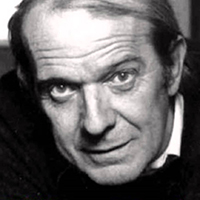The folding or doubling is itself a Memory: the ‘absolute memory’ or the memory of the outside, beyond the brief memory inscribed in strata and archives, beyond the relics remaining in the diagrams.
gilles Deleuzequotes
1925 - 1995

If there is one pervasive Deleuzian concept, it is that of creation. He was a constructionist through and through, believing that philosophy is not the pursuit of universal truth and rationale, but rather the creation of concepts. He reasoned that individuals and the world were always in a state of becoming, not being.
His philosophy lectures at Paris VIII University never failed to pack the house. Students stole chairs from other classrooms to hear his over-the-top lectures and watch him chain smoke his way through class. If they were lucky, he’d get tired and play his musical saw.
He thought history was a map, not a narrative, and offered the metaphor of a rhizome as a better tool to explain not only culture, but philosophical thought; namely, a resistance to chronology and organization, and an embrace of nomadic and disordered growth (A Thousand Plateaus).
When he published Anti-Oedipus, co-authored with the radical psychoanalyst Félix Guattari, it was an instant hit in Paris. It took longer for the work to gain acclaim in the U.S., but when it did it became a mainstay in critical theory classrooms.
Struggling for years with respiratory problems due to tuberculosis in his younger years, along with other deteriorating health issues, a depressed Deleuze committed suicide in 1995.
What interests us in operations of striation and smoothing are precisely the passages or combinations: how the forces at work within space continually striate it, and how in the course of its striation it develops other forces and emits new smooth spaces.
I have no admiration for culture. I have no reserve knowledge, no provisional knowledge. And everything that I learn, I learn for a particular task, and once it’s done, I immediately forget it, so that if ten years later, I have to get involved with something close to or directly within the same subject, I would have to start again from zero, with some few exceptions.
The law is not known, since there is nothing in it to know. We come across it only through its action, and it acts only through its sentence and its execution. It is not distinguishable from the application. We know it only through its imprint on our heart and our flesh: we are guilty, necessarily guilty. Guilt is like the moral thread which duplicates the thread of time.
This is how it should be done: lodge yourself on a stratum, experiment with the opportunities it offers, find an advantageous place on it, find potential movements of deterritorialization, possible lines of flight, experience them, produce flow conjunctions here and there, try out continuums of intensities segment by segment, have a small plot of new land at all times.
The best one can hope for is a government favorable to certain claims and demands from the Left.
I believe strongly that philosophy has nothing to do with specialists.
Either it is the fold of the infinite, or the constant folds [replis] of finitude which curve the outside and constitute the inside.
The schizophrenic delirium lays bare the material processes of the unconscious.
Morality consists in this for each individual: to attempt each time to extend its region of clear expression, to try to augment its amplitude, so as to produce a free act that expresses the most possible in one given condition or another.